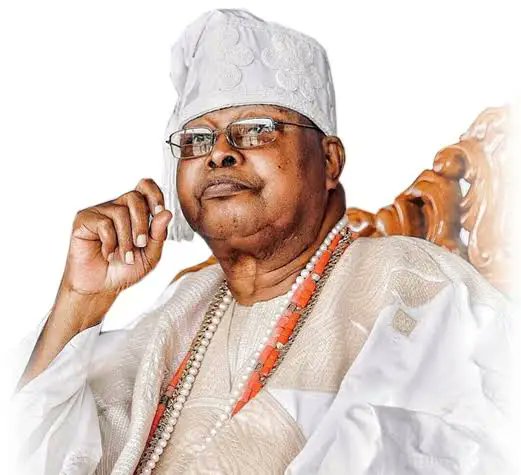The death and burial of the Awujale of Ijebuland, Oba Sikiru Adetona, ignited a fiery debate in Ogun State, Nigeria, over the rightful custodians of traditional burial rites for monarchs. The controversy stems from the Ogun State Obas and Chiefs Law of 2021, a piece of legislation intended to grant traditional rulers autonomy in choosing their burial rites based on their religious beliefs. However, this law has been met with fierce resistance from traditional worshippers, particularly members of the Osugbo cult, who maintain that royal burials are sacred traditions that must be upheld regardless of the monarch’s personal religious preferences.
The tension reached its peak during the Awujale’s funeral when Osugbo members, traditionally responsible for conducting royal burials, were barred from participating. Their attempt to assert their role was met with apprehension and rejection by the community, leading to their expulsion from the Awujale’s residence by soldiers. The late monarch was subsequently buried according to Islamic rites, further fueling the outrage of the traditionalists. They argue that this act constitutes a blatant disregard for established custom and a misinterpretation of the 2021 law.
Chief Ifasola Opeodu, Coordinator of the Traditional Worshippers Association of Ogun State and a prominent member of the Osugbo cult, condemned the government’s deployment of security forces against the traditional worshippers, characterizing it as an overreach of power and a violation of their rights. He stressed that while they accepted the Obas and Chiefs Law of 2021, the government’s subsequent actions, particularly the use of force to prevent traditional rites, have compelled them to seek legal redress. Opeodu contends that the law does not explicitly grant monarchs the right to choose their burial rites based on religion, and the government’s interpretation is a misrepresentation.
Opeodu further criticized the manner in which the Awujale was buried, contrasting it with the traditional burials of other monarchs like the Alaperu of Iperuland and the Alaye of Odogbolu. He lamented the Osugbo’s failure to secure the Awujale’s body before the Islamic burial, attributing it to a lapse in their responsibilities. He underscored the importance of adhering to tradition, emphasizing that royal burials are a community affair, not solely dictated by individual preferences.
The traditional worshippers’ core argument hinges on their interpretation of the 2021 law. While the law allows for consideration of a monarch’s religious beliefs, they assert that it does not supersede established tradition. They believe the government’s actions have not only misinterpreted the law but also infringed on the traditionalists’ right to practice their customs. This disagreement over the interpretation of the law has become the crux of the conflict, with the traditionalists viewing the government’s actions as a deliberate attempt to erode their cultural heritage.
The dispute over the Awujale’s burial highlights a deeper conflict between tradition and modernity in Ogun State. The traditionalists see themselves as protectors of ancient customs, while the government, in enacting the 2021 law, seemingly aimed to provide greater religious freedom to monarchs. This clash of values underscores the challenges faced by societies undergoing modernization, where balancing individual rights with the preservation of cultural heritage becomes paramount. The traditionalists’ vow to challenge the government’s actions through legal means sets the stage for a prolonged legal battle that will ultimately determine the future of royal burial rites in Ogun State.


